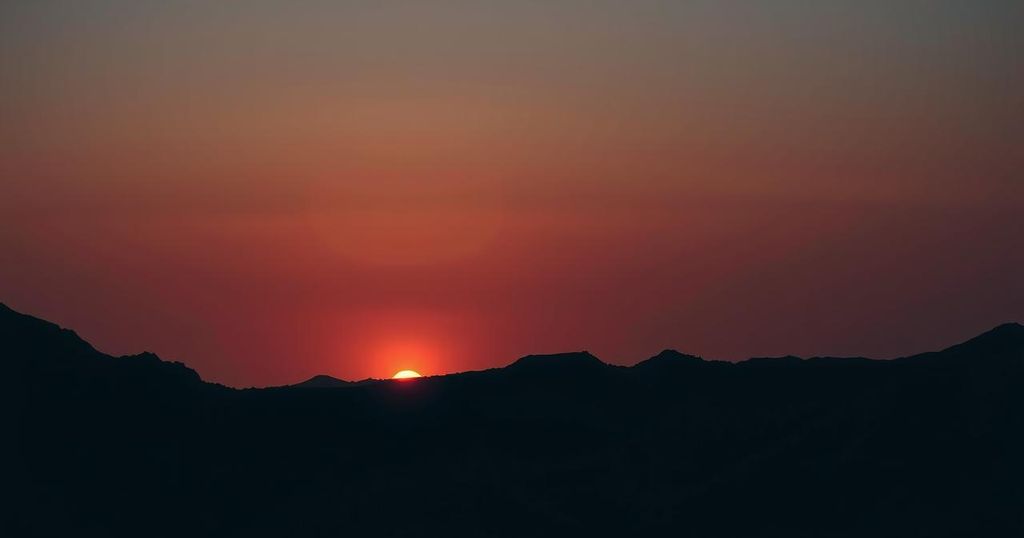M23 Rebels Capture Goma as Tensions Escalate Between DRC and Rwanda

M23 rebels have captured Goma, causing mass panic among the city’s residents and prompting the DRC government to declare a state of war. UN peacekeepers are witnessing failures to contain the M23, with accusations of Rwandan support worsening tensions. Voices from international leaders are calling for an immediate ceasefire to protect civilians amid the escalating conflict, with serious humanitarian implications expected.
On January 27, M23 rebels asserted that they had seized Goma, the largest city in eastern Democratic Republic of Congo (DRC). With the United Nations recording widespread panic among Goma’s 2 million residents, DRC officials labeled the insurgent movements a “declaration of war.” The rebels had given a 48-hour ultimatum for the Congolese army to surrender, which they extended with a call for calm among Goma’s inhabitants.
The M23’s actions jeopardize the already precarious humanitarian situation, likely increasing displacement in North Kivu province, where one-third of the population has been displaced. UN peacekeepers began processing military personnel surrendering on Goma’s outskirts, as calls intensified from international parties for a ceasefire and for Rwanda to withdraw support from the M23 group.
Government spokesman Patrick Muyaya implored for civilian protection amidst the conflict, while international leaders from both the United States and France condemned the offensive and echoed the call for cessation of hostilities. UN reports indicated that the M23 offensive is causing mass violence and panic, further destabilizing the region.
UN’s special representative noted that the M23 fighters were utilizing civilians as shields during their advances. This alarming situation prompted the temporary evacuation of nonessential UN staff from Goma in anticipation of escalating violence. The city, already a humanitarian crisis hub, faced heightened risk as heavy gunfire echoed nearby.
Congo’s foreign minister accused Rwanda of direct aggression, claiming that it constitutes a clear act of war. As relations between the two nations deteriorated, diplomatic ties were severed, further escalating tensions in the region. Rwanda officials, on the other hand, dismissed the accusations, blaming the Congolese government instead.
Recent developments indicate that the M23 has made significant territorial progress, despite considerable international pressure to uphold peace. The conflict has resulted in fatalities among peacekeeping troops and extreme humanitarian distress among civilians, many of whom are fleeing to safety amidst the intensifying violence.
The Democratic Republic of Congo has been embroiled in conflict for years, with numerous armed groups vying for control, particularly in resource-rich areas. The M23, predominantly composed of ethnic Tutsis, has historically been involved in such conflicts, with previous offensives in 2012 leading to major international intervention. The region’s instability has led to massive humanitarian crises, with a significant portion of the population internally displaced or at risk due to escalating violence.
The ongoing M23 offensive in Goma marks a critical juncture for peace in the DRC, risking further humanitarian catastrophe. International calls for immediate ceasefire and accountability have become increasingly urgent, as both Congolese government officials and UN representatives strive to manage the escalating violence and protect vulnerable populations. Recent developments necessitate rigorous diplomatic engagement to prevent a full-blown war and mitigate the suffering of the affected civilian populations.
Original Source: www.lemonde.fr








